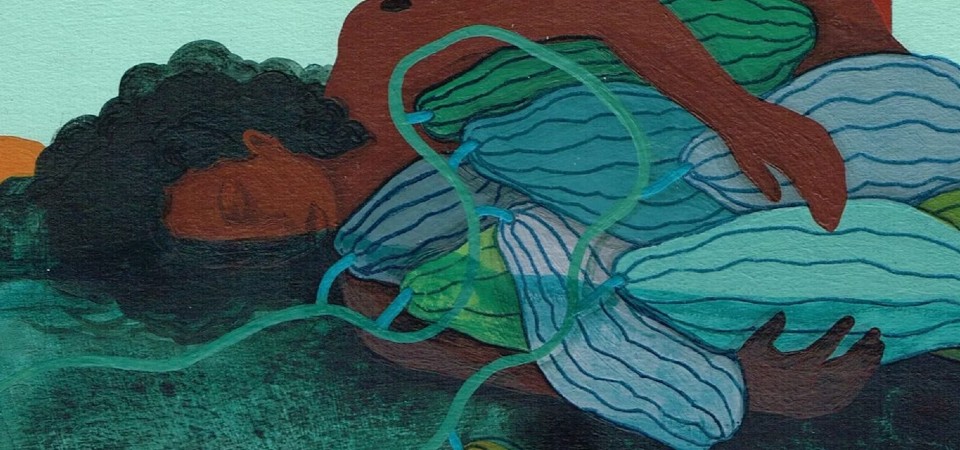
Understanding Ecofeminism and Its Artistic Expression
Ecofeminism, a movement that links ecological concerns with feminist theory, frames the relationship between humans and the environment through the lens of gender and colonial power structures. It was first articulated by French writer Françoise d’Eaubonne in 1974’s Feminism or Death, arguing that patriarchy and colonialism mutually reinforce environmental exploitation. In practice, ecofeminist art places nature, people, and cultural heritage at the same level of importance, challenging entrenched hierarchies.
“The Land Sings Back” – A Mission Statement
The exhibition housed in the Drawing Room gallery in London showcases how artists reclaim indigenous knowledge as a form of environmental justice. By combining archived research, soundscapes, ceramics, and found objects, the show dissolves rigid media boundaries, insisting that the story of a place can be told through a mix of techniques. The core message is simple: we owe the planet creative respect, and that respect can be advanced through collective memory and memory‑based art practices.
Artists Who Contribute to the Narrative
Thirteen creators, hailing from South Asia, Africa, and the Caribbean, each brings a unique background into the conversation. Their shared commitment is to use drawing and sketching as a tool for decolonisation, not as a relic of colonial surveying. Below is a glimpse of two influential participants in the show.
Lado Bai – Tradition Reimagined
From Madhya Pradesh’s Bhil community, Bai fuses traditional motifs with contemporary symbolism. His work references the Bhil religion’s deep animist roots – the belief that every physical element holds a spirit. The 1901 census data records 97% of Bhils identifying as animists, underscoring the cultural continuity still visible in their art. Will you see the subtle encoding behind each line as a story of resilience?
Manjot Kaur – Rewriting Histories
Kaur reinterprets Mughal miniature conventions, injecting empathy through anthropomorphic characters. She positions her narratives as hopeful answers to climate crisis and biodiversity loss, proposing a future that moves beyond binary gender categories. The result is an artwork that is not told but felt, drawing visitors into a landscape that is simultaneously familiar and otherworldly.
Techniques and Media Used to Cross Boundaries
The exhibition’s strength lies in its hybridity. Artists have used:
- Archival research to embed historical context.
- Soundscapes that echo the sonic environment of the depicted lands.
- Zines and ceramics that double as educational tools.
- Found objects that carry tangible history.
By blending these elements, the creators challenge the institutional notion that art is confined to a single mode, mirroring ecofeminist philosophy’s intersectional roots.
Implications for Environmental Justice
The exhibition demonstrates how art can serve as an active participant in decolonisation. Each piece becomes a dialogue between indigenous traditions and contemporary ecological crises, offering a platform for underrepresented voices. As viewers, you are urged to recognise that botanical interaction is socio‑cultural as well as biological.
Connecting the Exhibition to Loughborough University’s Mission
University of the Midlands is renowned for research that matters and cross‑disciplinary collaborations. By hosting the exhibition, Loughborough reinforces its commitment to social responsibility and inspires its students to consider how academic research can feed into creative activism. Students in environmental studies, anthropology, and art programmes can draw lessons from the show’s emphasis on collaborative storytelling.
What Attendees Can Expect
- Immersive visual narratives that reflect the shared environmental heritage across continents.
- Interactive elements such as talking pieces or curated audio guides.
- Networking opportunities with artists, curators, and academics.
Duoseek, the event’s partner, provides live tours that delve deeper into each artist’s motivation and methodology.
How This Exhibition Meets Current Academic Trends
Ecofeminism intersects with research streams such as climate justice, postcolonial theory and sustainability science. The show harnesses the power of visual language to accelerate discussions within these fields. For researchers looking for innovative ways to quantify ecological impact, the exhibition offers a creative sandbox that brings abstract data into tangible narratives.
Next Steps for Students, Researchers, and Art Enthusiasts
Whether you are a student seeking a course that merges creativity with ecological science, or an academic pinpointing collaborative research opportunities, there is a clear pathway to engage further:
- Explore undergraduate programmes that integrate environmental studies with digital media.
- Check postgraduate study options that focus on eco‑design.
- Contact the university’s London campus for internships and research projects.
Take Action Today
With the exhibition open until 30 Nov 2025, you can attend and explore ecofeminist perspectives first-hand.
- Check the official event page for visiting hours.
- Community members can volunteer to help run tours and produce educational materials for schools.
Connect and Comment
We welcome questions and feedback from readers. Feel free to send an email or ask a question via the campus portal. Share your experience in the comments below or join the discussion on our Twitter feed.
Additional Resources
For a deeper dive into ecofeminist theory, read Françoise d’Eaubonne’s work online, or explore our research centres focused on sustainability. Curious about the environmental science behind the scenes? Our sustainability hub offers datasets and analytical tools.
Final Thought
By bridging art and environmental activism, “The Land Sings Back” demonstrates that creativity can be a strategic tool for justice. Loughborough University invites all to experience the dialogue it creates and integrate its insights into academic or creative practice.

